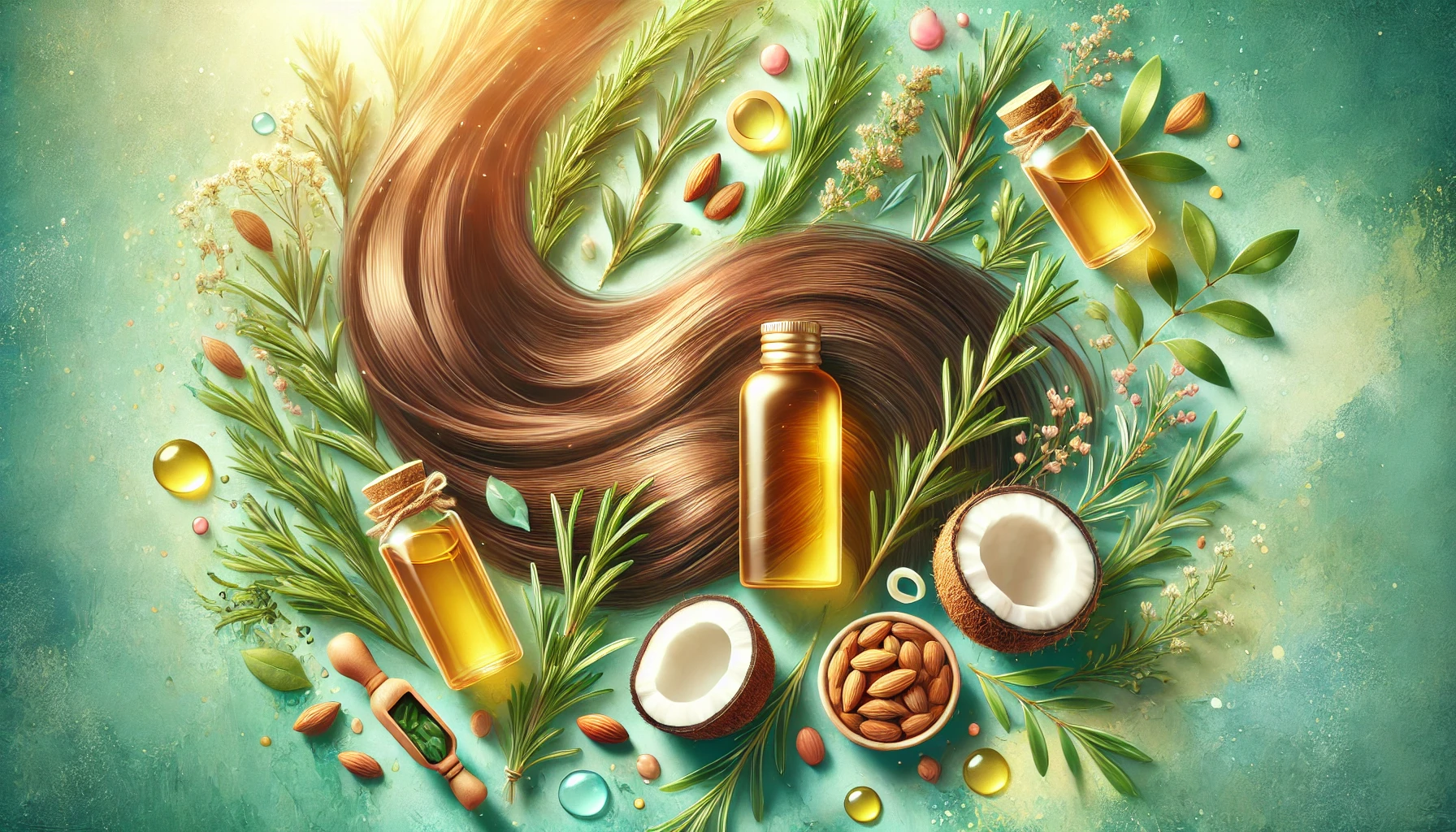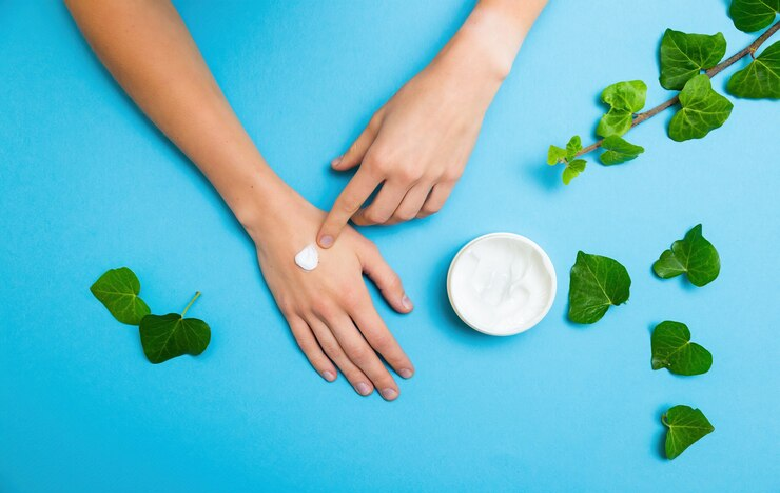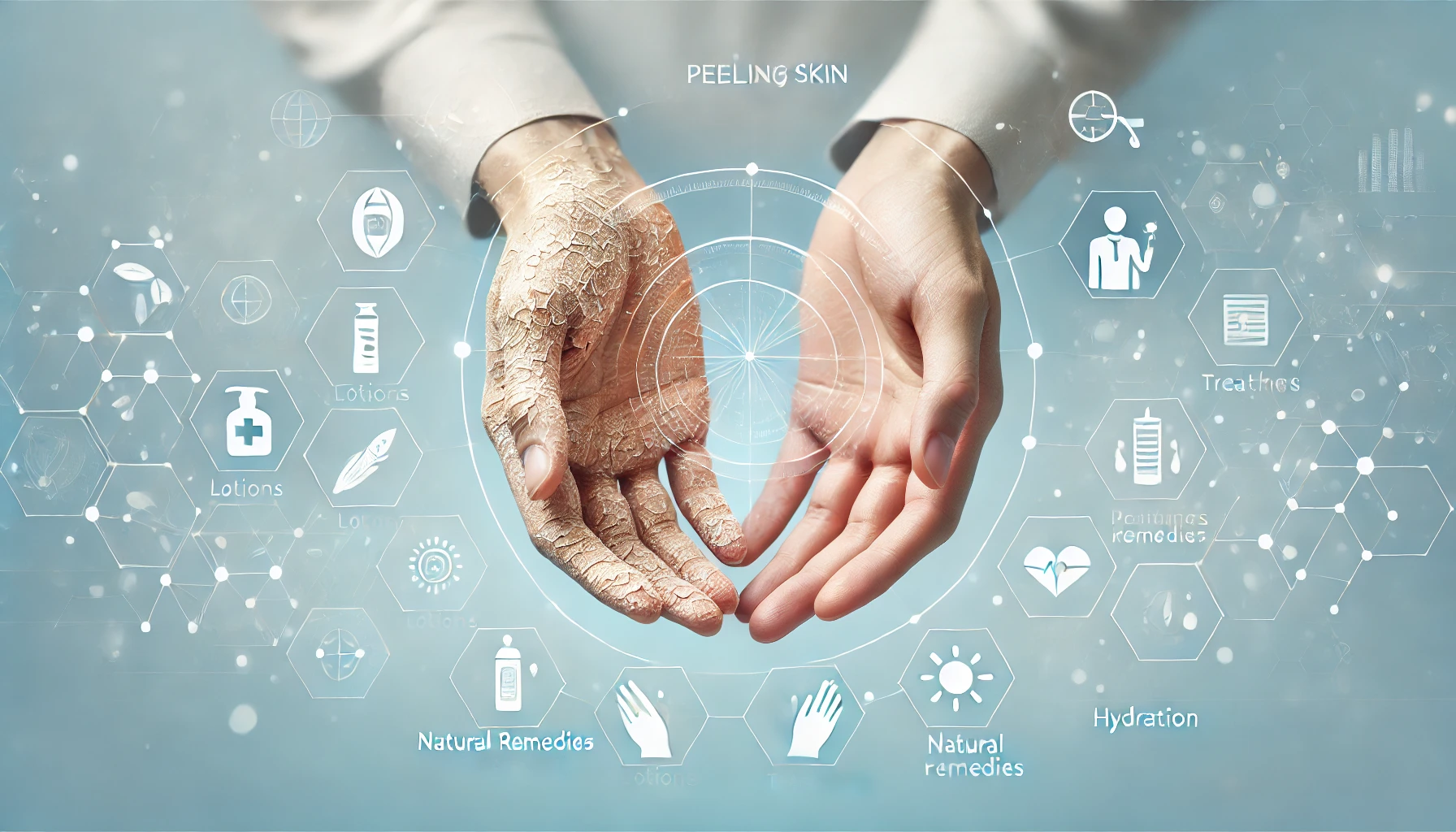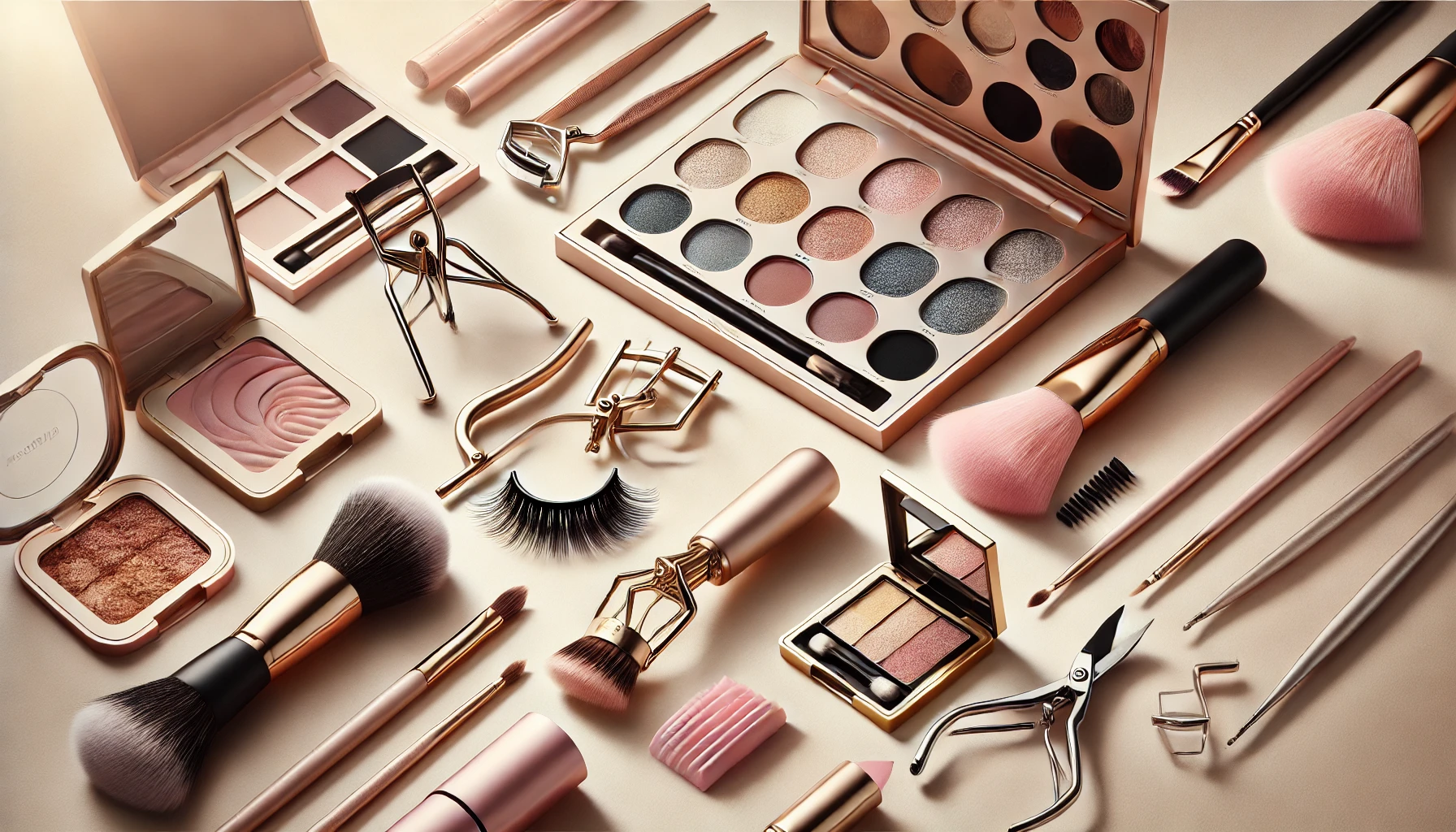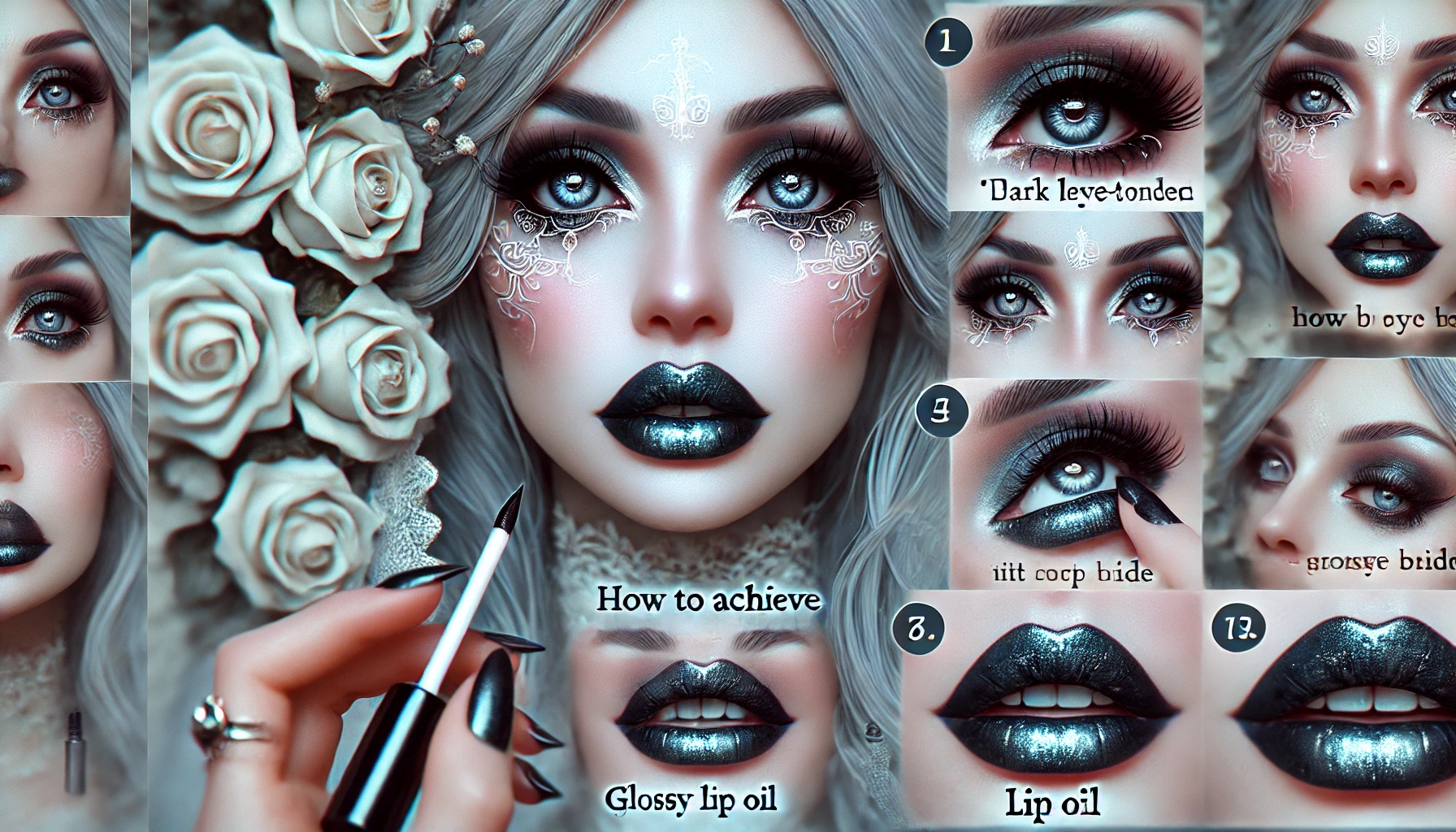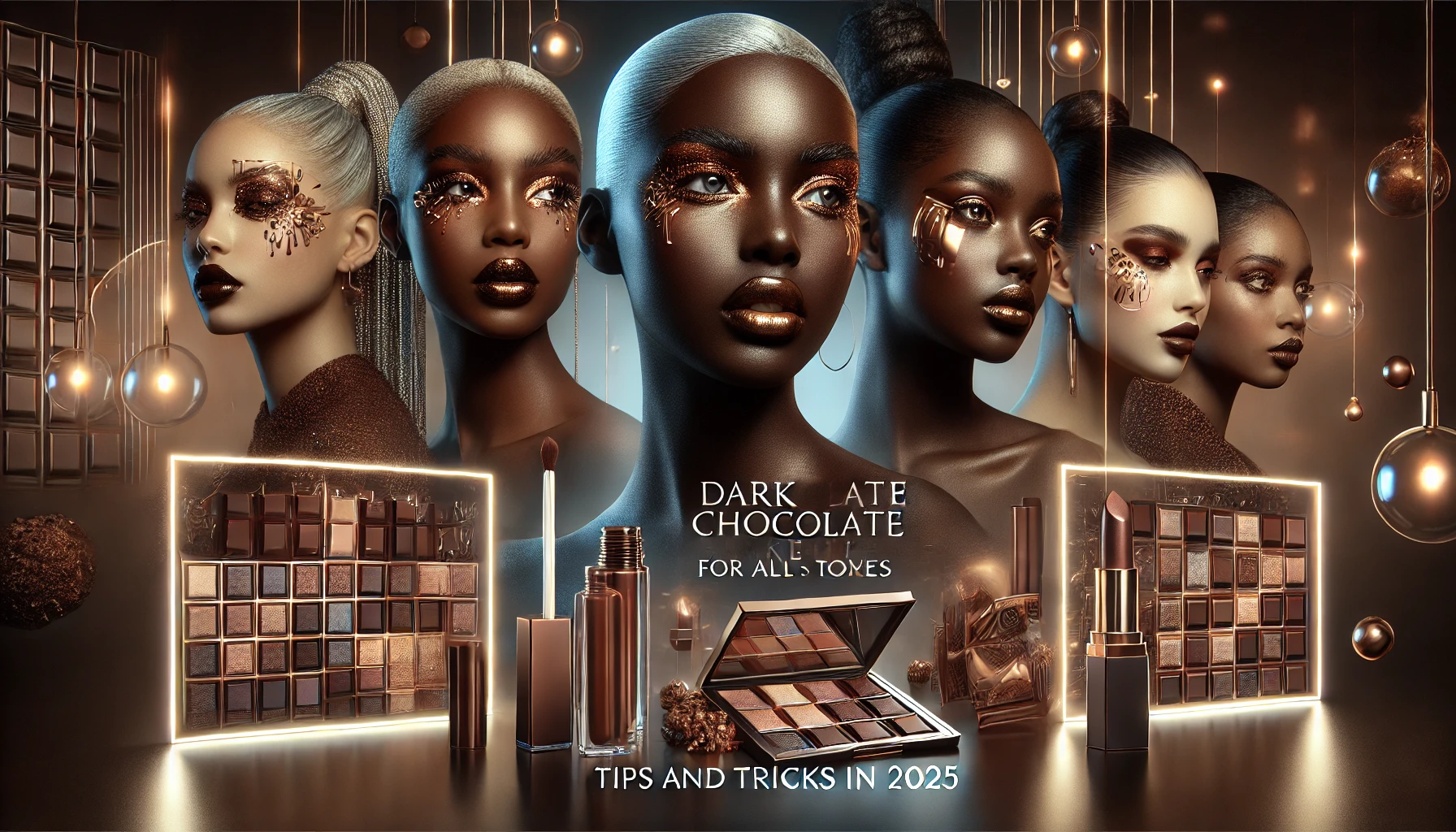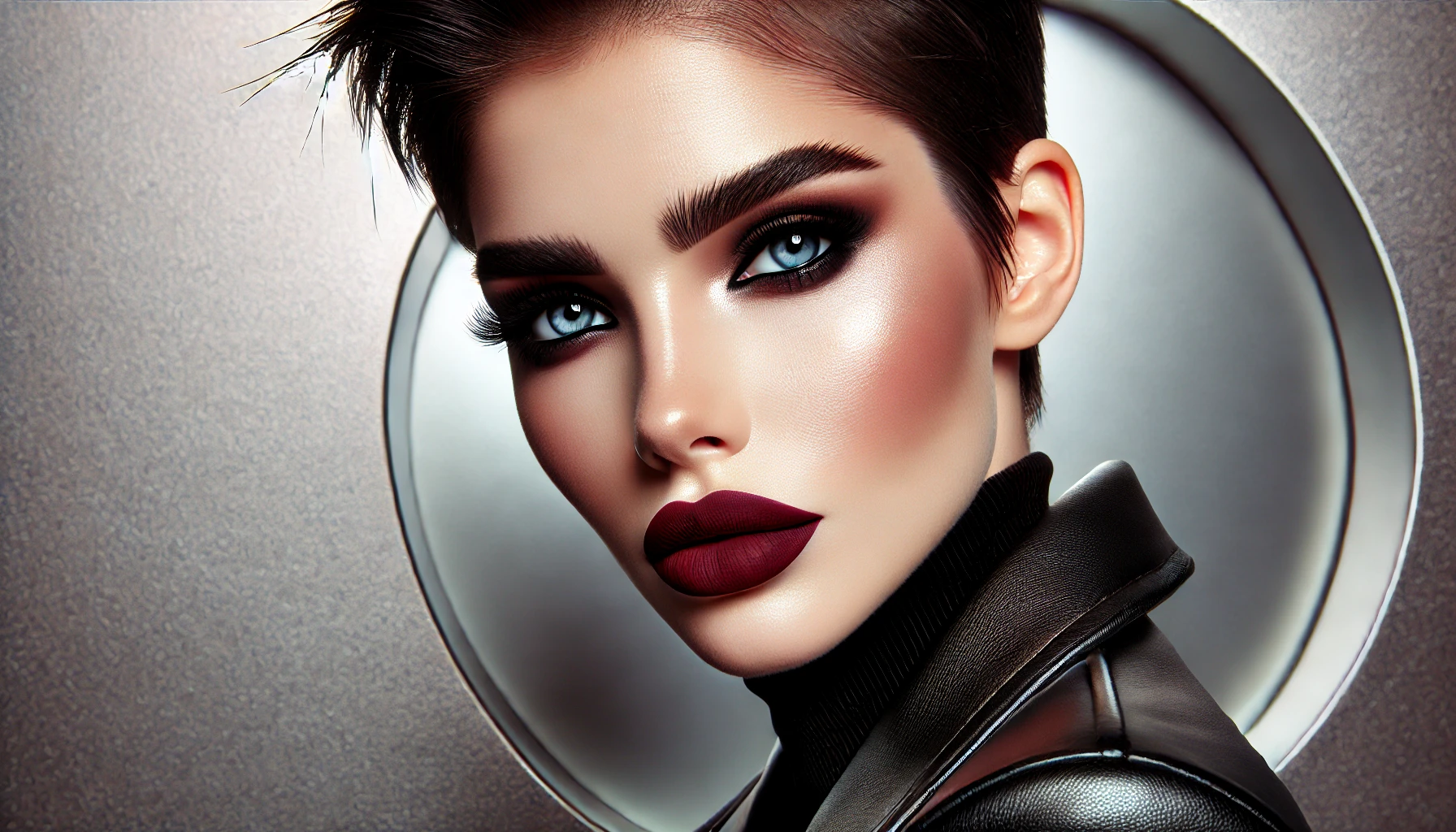10 Best Hair Growth Oils to Transform Your Hair Naturally shows you the best oils that can help your hair grow in a healthy way and give it shine and life again.
This guide talks about the natural benefits of each oil, from rosemary oil to castor oil, how to choose the right one for your hair type, and how to use it correctly. Find out how these oils can help you get bigger, stronger hair and improve the way you care for your hair.
Want to change the way your hair looks naturally? Hair growth oils are a great way to bring life back to hair that is dull, thinned, or harmed. Adding the right oils to your routine can make a huge difference, whether you’re losing your hair or just want to make it stronger and healthier.
There are no hard chemicals in natural hair oils, so they are full of nutrients that are good for the skin, keep the hair moist, and help it grow. Are you ready to learn which oils work best for you? Here is a list of the 10 best hair growth oils that can help you get thick, healthy hair.
Table of Contents
ToggleWhat Causes Hair Loss?
Before looking into the best oils, it’s important to know what causes hair loss in the first place.
Genetics
If hair loss runs in your family, it’s likely due to genetics. One of the most common reasons people lose their hair is androgenetic alopecia, which means it runs in the family.
Environmental Factors
Your hair can get damaged by pollution, worry, and chemicals that are bad for you. Pollutants in the surroundings and UV rays can weaken hair cells and slow growth.
Poor Hair Care Routines
When you use heat styling tools, strong shampoos, and chemical treatments on your hair often, they can break and damage it. If you change your habit and use natural oils, you can sometimes fix the damage.
How Do Hair Growth Oils Work?
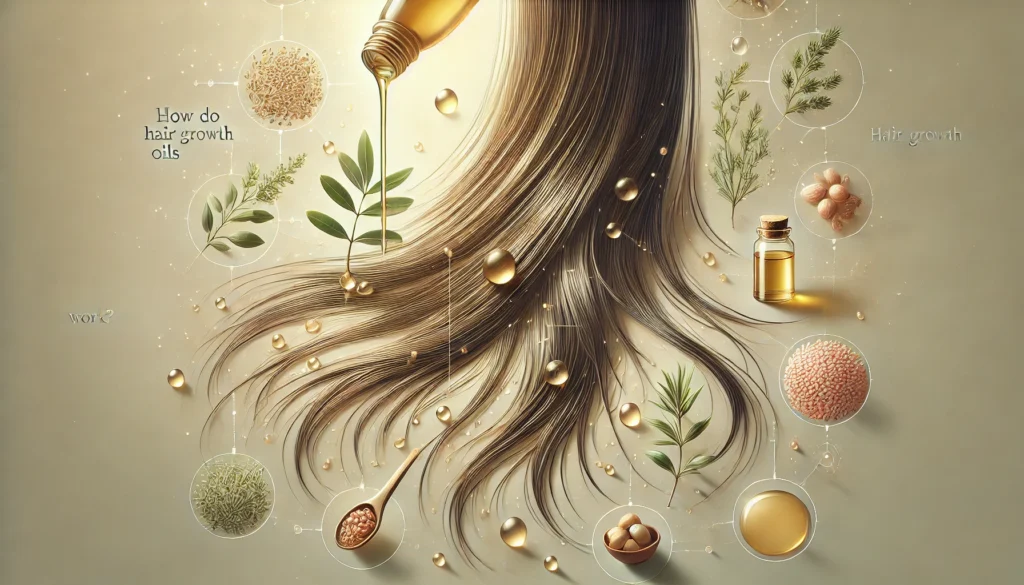
Hair growth oils have a lot of important nutrients that make hair stronger from the roots up.
Nourishing the Scalp
For hair to grow, the skin needs to be healthy. Hair oils get deep into the head and feed it with vitamins and antioxidants. This keeps the cells healthy and helps them grow hair.
Strengthening Hair Follicles
The oils make the hair cells stronger, which stops hair loss and makes the hair thicker and stronger generally. These oils help hair grow by increasing blood flow to the head. They also stop further hair loss.
Benefits of Using Natural Hair strengthening oils
Hair oils have been an important part of beauty practices for a very long time.
Chemical-Free Advantages
Natural oils don’t have chemicals like parabens and sulfates that are bad for you, so they are safer to use for a long time.
Nourishment and Hydration
They moisturize hair that is dry and brittle and replace the moisture that hair loses when it is in the sun, wind, or style products.
Top 10 Hair Growth Oils

Argan Hair Growth Oils
Argan oil, which is sometimes called “liquid gold,” is great for dry, damaged hair. It has a lot of Vitamin E and fatty acids that keep the skin and hair very fresh.
- Benefits: Conditions, strengthens, and brings back shine.
- To Use: Put a few drops on wet hair, focusing on the ends.
Castor Oil
Castor oil helps hair grow like crazy. Because it has a lot of ricinoleic acid, it helps blood flow to the head, which makes hair grow.
- Advantages: makes hair thicker, encourages new growth, and lowers acne.
1.It works best if you massage it into your hair and leave it on overnight.
Coconut Oil
In addition to killing germs, coconut oil is one of the best oils for hair and skin health.
- Benefits: stops protein loss, keeps hair fresh, and makes it stronger.
- To Use: Warm it up a bit and work it into your hair from the head to the tips.
Olive Oil
Olive oil is great for dry, damaged hair because it is full of antioxidants and vitamins A and E.
- Benefits: conditions hair, makes it more flexible, and supports healthy skin.
•How to Use It: Put a lot of it on your hair and cover it with a warm towel for 30 minutes.
Jojoba Hair Growth Oils
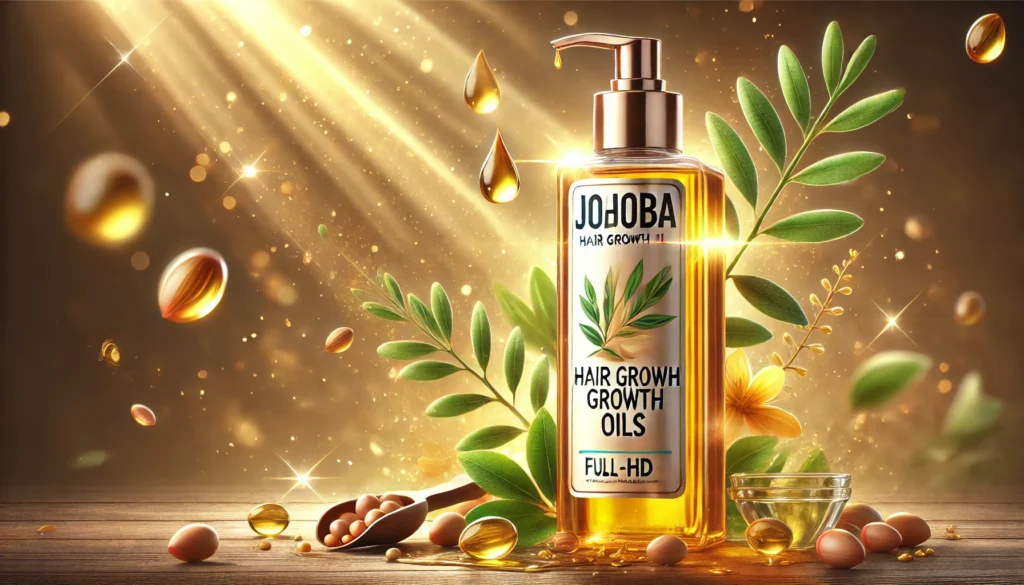
Jojoba oil is great for balancing oil production because it works like the oils on your skin.
- Pros: It moisturizes hair without making it heavy, which is great for people with oily scalps.
- How to Use: Before you wash your hair, massage a small amount into your head.
Rosemary Oil
Rosemary oil is known to make hair grow faster. Studies show that it might work just as well as minoxidil, which is often used to treat hair loss.
- Benefits: improves blood flow and makes hair stronger.
•Putting a few drops on your hair after mixing them with a carrier oil is how to use them.
Peppermint Oil
The cooling effect of peppermint oil and its ability to improve circulation help hair grow.
- Pros: It stimulates hair cells and makes blood flow faster.
•To Use: Mix it with a carrier oil and rub it into your hair.
Almond Hair Growth Oils
Biotin and vitamin E are found in large amounts in almond oil. Both are important for hair growth.
- Benefits: Fixes injured hair and stops hair loss.
•How to Use It: Put it on your hair and head and rub it in. Wait an hour and then rinse it out.
Tea Tree Oil
Because it kills fungi, tea tree oil can get rid of dandruff, which can stop hair from growing.
- Benefits: cleans the head, eases itching, and helps hair grow.
- How to Use: Mix a few drops with your shampoo or use a neutral oil to make it less strong.
Amla Hair Growth Oils
Native to India, amla oil is full of minerals and vitamin C.
- Advantages: makes hair stronger, less likely to break, and shiner.
2.Directions: Massage into the hair to deeply strengthen it.
How to Choose the Right Oil for Your Hair Type
How well you do at getting your hair to grow can depend on which hair growth oil you choose.
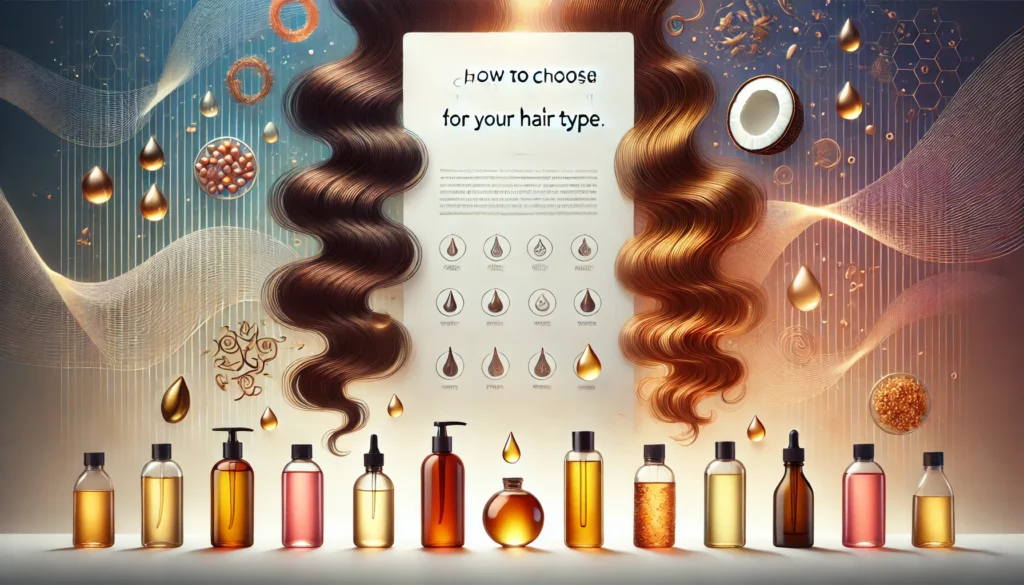
You should choose an oil that works well with your skin and hair type because each has its own needs. Here are some steps you can take to find the best oil for your hair type:
Oily Scalp
You don’t want a heavy oil that makes your hair greasy if your skin is sticky. Lightweight oils like jojoba or tea tree oil are great because they work like the sebum your skin naturally makes, which helps keep oil production in check. Tea tree oil can help get rid of oil and dandruff because it kills germs. Jojoba oil moisturizes without clogging pores.
Dry Scalp Hair Growth Oils
Heavy oils that truly moisturize, like olive oil, coconut oil, or castor oil, are best for scalps that are dry or flaky. These oils get deep into the head and hair shafts to truly moisturize and calm irritated skin. Many oils, like coconut and castor, have fatty acids that keep moisture in. Castor oil is great for fixing and moisturizing a dry hair because it is thick.
Combination Scalp
It can be hard to take care of a head that is oily in some places and dry in others. For this type of hair, almond oil or argan oil works well because they keep the skin moist without being too heavy or greasy.
These oils can be used in many situations because they add wetness where it’s needed and are light enough not to build up on oilier areas.
DIY Hair thickening Oils Blends
By making your own hair oil mix, you can change the oils to fit your needs.
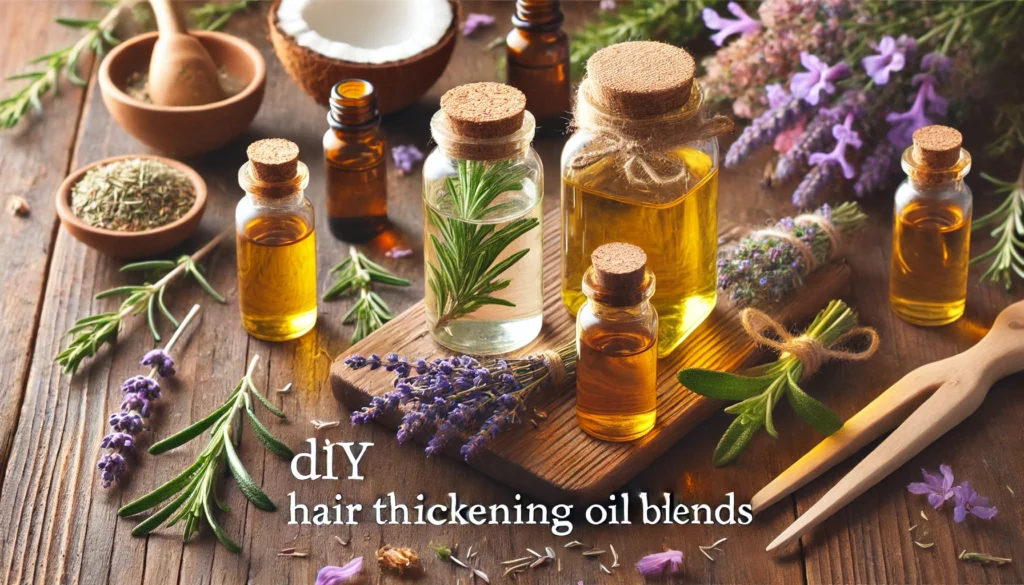
Recipe Ideas
- For dry hair, mix coconut oil, argan oil, and a few drops of rosemary oil until they are all the same amount.
- If you have oily hair, mix peppermint oil, tea tree oil, and jojoba oil to make a cool, non-greasy mix.
Customizing Oils for Specific Needs
You can target problems like acne, hair loss, or frizz by adding essential oils to your base oils.
How to Apply Hair Growth Oils
The best way to get the most out of hair growth oils is to use them properly. For the best results, here is a step-by-step guide on how to use hair oils.
Scalp Massage Techniques
For hair oils to work best, rub them into your head for 5 to 10 minutes. This makes the blood flow better and makes sure the oil gets deep into the hair shafts.
Frequency and Timing
With different types of hair, you can use hair oils two to three times a week. If you want a stronger treatment, leave the oil on overnight and wash off in the morning.
Common Mistakes When Using Hair Growth Oils
With different types of hair, you can use hair oils two to three times a week. If you want a stronger treatment, leave the oil on overnight and wash off in the morning.
Overusing Hair Growth Oils
It’s bad for your hair and skin to have too much oil on them. Use a small amount and spread it out evenly.
Not Understanding Your Hair Type
If you pick the wrong oil for your hair type, it could get too oily or too dry. It’s important to pick the oil that works best for you.
How Long Does It Take to See Results?

“How long will it take to see results?” is one of the most popular questions people have about hair growth oils. Actually, the time frame can be very different depending on a lot of things, such as the oil you use, your hair type, your general health, and how regularly you follow your routine.
Short-Term vs Long-Term Results
If you use it every day, your hair may become softer and shiner in a few weeks. Hair growth, on the other hand, takes time. For best results, use it regularly for 2-3 months.
Consistency is Key Hair Growth Oils
Keeping to your plan is important. Hair growth oils work best when used regularly, just like any other beauty routine.
Natural Oils vs Commercial Hair Growth Oils Products
Natural oils and store-bought hair products are often at odds with each other when it comes to hair care. There are pros and cons to both, but natural oils are usually better for long-term hair health and growth.
Comparing Ingredients
A lot of commercial hair products have different chemicals in them, like sulfates, parabens, and artificial scents. These chemicals can sometimes take away the hair’s natural oils, which can make it dry, break, and even irritate the skin.
On the other hand, these harmful chemicals are not found in natural oils. They give your hair and skin vitamins, minerals, and antioxidants that help it grow without using chemicals that could be harmful.
Why Natural Oils Are Often Better
Natural oils feed the skin and hair follicles for a long time, unlike many store-bought items that only make hair shiny or soft for a short time. They keep hair moist from the inside, fix damage, and make it stronger from the inside out. On top of that, natural oils are flexible; you can mix them and make them fit your hair’s needs.
Nature-based oils are also often cheaper and better for the earth. A lot of store-bought items are not only expensive, but they also come in plastic boxes that make waste. Natural oils usually come in packing that is better for the earth, which makes them a better choice for the long term.
Side Effects to Consider
Allergic Reactions
Before using new oils, you should always do a patch test to make sure you’re not allergic.
Overuse and Buildup
If you use too much oil or don’t rinse it out properly, it can build up and make your hair look greasy.
Success Stories: People Who Transformed Their Hair Using Oils
Adding oils to their hair care routine has helped a huge number of people get great results. Many people who used it regularly said their hair was fuller and healthier, even if they had problems with thinning, breaking, or dryness.
The Role of a Balanced Diet in Hair Growth Oils
Hair growth oils can make your hair look and feel much better, but what you eat is even more important for hair growth and health in general.

A well-balanced diet with many different nutrients is important for giving the body what it needs to keep hair healthy and strong.
Importance of Vitamins and Minerals
There are some vitamins and minerals that are especially good for hair growth:
Biotin is a B vitamin that is often said to help hair grow. It makes hair stronger and encourages new growth. Biotin can be found in whole grains, nuts, and eggs.
- Vitamin D: Not getting enough vitamin D has been linked to hair loss by research. This vitamin can be found in sunshine, fatty fish, and foods that have been added to them to make them healthier.
- Iron: Not getting enough iron can make you lose your hair. Iron is important for hair growth because it helps red blood cells carry oxygen to hair roots. Red meat, spinach, beans, and grains with added iron are all good sources of iron.
- Zinc: This mineral helps hair cells grow and heal. Hair loss can be caused by not getting enough zinc, so eating foods like pumpkin seeds, nuts, and whole grains can help.
- Omega-3 Fatty Acids: These good fats help keep your head moist and may even help your hair grow. Oily fish, like salmon, flaxseeds, and peanuts are all good sources of omega-3s.
Foods That Promote Hair Growth Oils
If you want to make sure your hair gets all the nutrients it needs, try eating these foods:
Spinach, kale, and other dark greens are full of vitamins A and C, iron, and calcium, all of which are good for hair growth.
- Eggs: Eggs are a great source of protein and biotin, which are building blocks for hair growth and strength.
- Seeds and nuts: Nuts and seeds like almonds, walnuts, and chia are great for your hair because they are high in healthy fats and protein.
Berries: Berries are full of vitamin C and antioxidants, which can help protect hair cells and make more protein. - Sweet potatoes: Because they have a lot of beta-carotene, which the body turns into vitamin A, sweet potatoes are good for hair health and growth.
Hydration Matters
Don’t forget to drink water! To keep your hair healthy, you need to drink a lot of water. Hair that has been moisturized looks healthier and is less likely to break. Aim for at least eight glasses of water a day, and think about eating more foods that are high in water, like tomatoes and veggies.
Conclusion
A simple and effective way to encourage healthy, strong hair growth is to use natural hair oils every day. These oils will help your hair whether it’s getting thinner or you just want to add shine and wetness. How long are you going to wait? Start getting better hair today by finding the right oil for your hair type.
FAQs Hair Growth Oils
Can I mix multiple Hair Growth Oils?
Yes, mixing oils can make them work better, especially when you mix oils that help with different hair problems.
How often should I use hair growth oils?
It depends on the type of hair you have, but for most people, twice or three times a week is enough.
Are hair oils suitable for all Hair Growth Oils types?
Of course! All you have to do is find the right oil for your hair type and problems.
Can I leave hair oils in overnight?
Yes, leaving oil on overnight can make the skin feel more hydrated and healthy. Just make sure to wash it off really well in the morning.
Will Hair Growth Oils make my scalp greasy?
Getting greasy shouldn’t happen if you use the right kind and amount of oil for your hair. Always change the amount based on what your skin needs.

